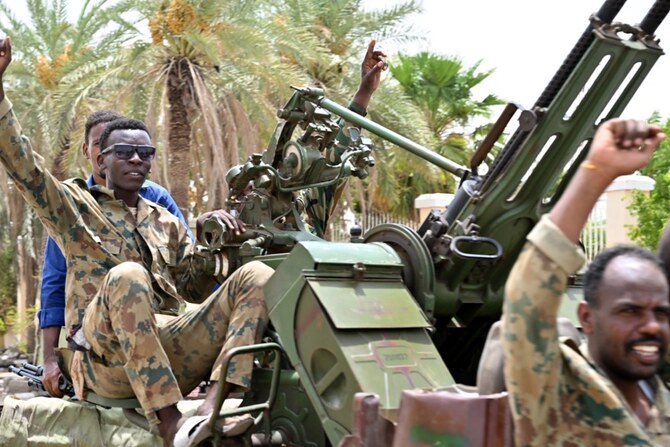NEW YORK CITY: A UN official on Friday described the situation in war-torn Sudan as “one of the ugliest” she has ever witnessed, with more than 26 million people facing acute hunger and millions of displaced women and girls deprived of their most essential needs.
Speaking after a visit to the country, Laila Baker, the Arab States regional director at the UN Population Fund, said: “We all know that war is ugly but this is one of the ugliest situations that I have ever witnessed in my entire life, certainly in my professional one.”
After 500 “devastating days” of conflict, Baker painted a dire picture of thousands of displaced women packed into a crowded shelter.
“They have no clean water, no hygiene, not enough food for their next meal, no medical care,” she said.
The UN said in August famine conditions were officially confirmed in the Zamzam camp for displaced persons, located close to El-Fasher, the capital of North Darfur, where one child is dying every two hours from malnutrition. Famine is probably also present in several other camps for displaced people in and around the city, the organization said.
War has been raging in the country for more than a year between rival factions of its military government: the Sudanese Armed Forces, under Gen. Abdel Fattah Al-Burhan, and the paramilitary Rapid Support Forces, led by Mohammed Hamdan Dagalo, commonly known as Hemedti.
More than 19,000 people have been killed since the conflict began in April 2023. The war has also created the worst displacement crisis in the world, as more than 10 million have fled their homes to other parts of the country or neighboring nations.
Baker choked back tears as she recounted the “horrendous” story of a 20-year old woman named Sana who was raped and has been suffering in silence for 15 months, when “she should be at the prime of her vibrancy and life.”
Speaking from Amman in Jordan, Baker said the UN is attempting to help deal with needs in Sudan that are “far greater than what the international community can cope with.”
She added: “But what pains me the most is that in a country that once was the breadbasket of the entire continent, producing wheat that they could distribute across Africa, half of the population — slightly over half of the population, 26 million people strong — are now facing famine.
“Of the 600,000 pregnant women, 18,000 are likely to die as a result of that famine. They don’t know where their next meal is going to come from.
“Let me be clear: This is a war on all of the civilians. It’s not just the women and girls but if you take the complications of conflict — loss, both material and human; the devastation of being displaced; losing your loved ones; and where there is widespread sexual violence — you can understand that we are very concerned at (the Population Fund) about the consequences, both immediate and long-term, on the women and girls of Sudan.”
Aid workers continue to face harassment, attacks and even death, aid convoys delivering food, medicine and fuel have been looted, and humanitarian access continues to be obstructed. A recent escalation of fighting in Sennar has caused further blocking of the southern route that was the main cross-lines option for UN deliveries of humanitarian aid from Port Sudan to Kordofan and Darfur.
The UN has been calling for speedy approvals and security assurances so that its workers can deliver life-saving supplies, including essential medicines, nutritional aid, water-purification tablets and soap, from Port Sudan to Zamzam and other areas in need.
Baker again emphasized the urgent need for unimpeded humanitarian access in a country where only one-in-four medical facilities are still functioning, 80 percent of the healthcare system has been damaged or destroyed, and where large areas of the country, especially in the west, are completely unsafe for humanitarian work.
Asked by Arab News what message she would send to the leaders of the warring factions, Baker said: “I would say to the generals, and everyone else who's involved in this conflict and who can bring hostilities to a halt: the sooner, the better for everyone involved. Let peace flourish. Let it have a chance.
“The conflict is driving a stake into the heart of Sudan. No one prospers under this situation, least of all the women and girls.”




























